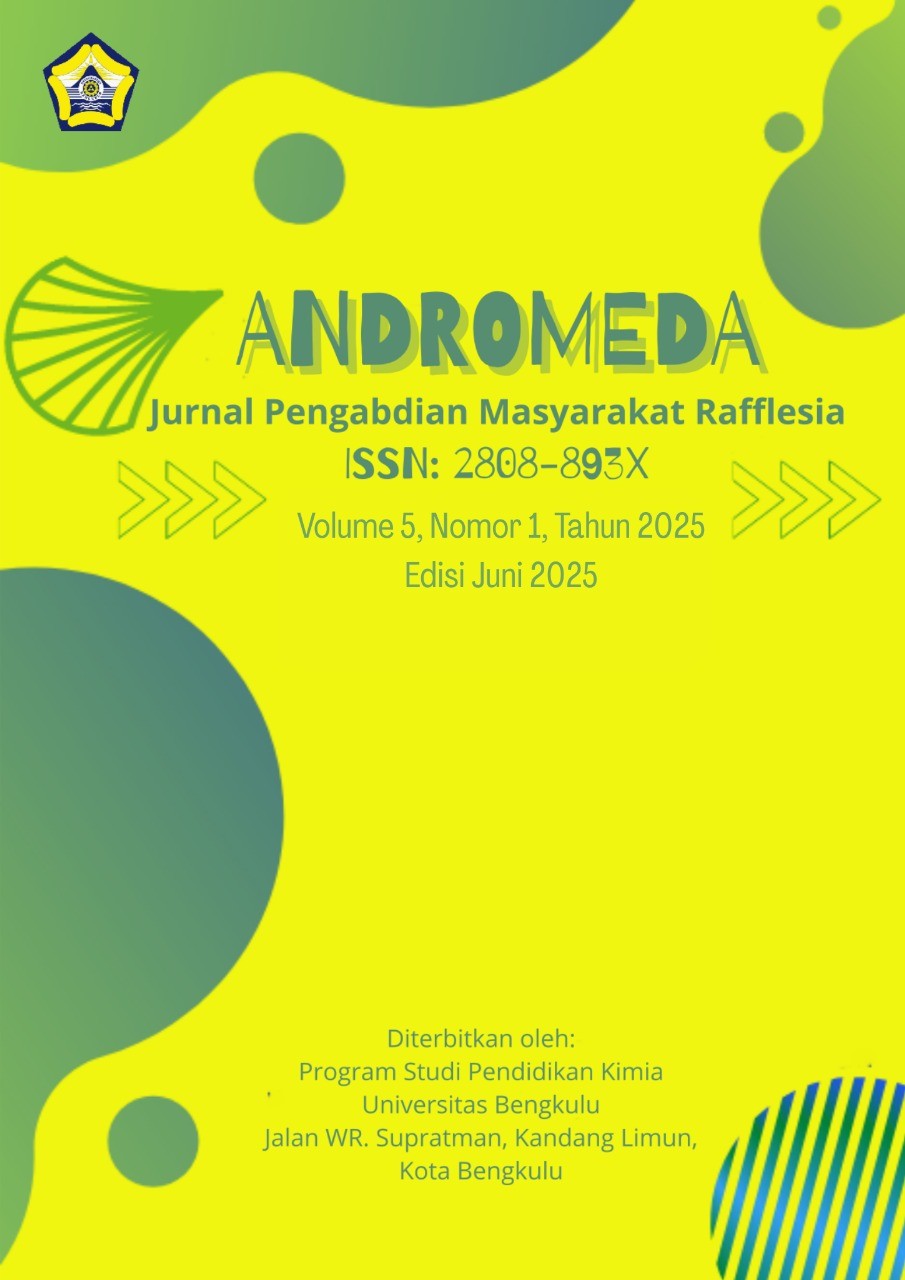Main Article Content
Abstract
The purpose of this community service activity is to increase knowledge of catfish farmers in Srikaton Village, North Bengkulu, about the need to process catfish into various products that have higher economic value. Community service activities are divided into two stages: counseling and demonstration. In the counseling activity, participants are given provisions on various processing of catfish products and their natural preservation. Then, a demonstration and practice are carried out to directly show how to process catfish into various home industries with economic value. Catfish farmers, PKK mothers, and residents in the surrounding area attended this activity. The result of this activity is that mothers around Srikaton Village can make their own various processed catfish foods in the form of shredded catfish, crackers, and catfish nuggets. The obstacles still faced are self-awareness to become entrepreneurs, and marketing of home industry products that have been produced. This problem can be resolved according to the desired target through systematic and continuous assistance.
Keywords: Catfish; catfish floss; catfish chips; catfish nuggets; home industry
Article Details
Copyright (c) 2025 Devi Ratnawati

This work is licensed under a Creative Commons Attribution-ShareAlike 4.0 International License.
Authors who publish in this journal agree with the following terms:
- Authors retain copyright and grant the journal right of first publication with the work simultaneously licensed under a Creative Commons Attribution License that allows others to share the work with an acknowledgement of the work's authorship and initial publication in this journal.
- Authors are able to enter into separate, additional contractual arrangements for the non-exclusive distribution of the journal's published version of the work (e.g., post it to an institutional repository or publish it in a book), with an acknowledgement of its initial publication in this journal.
- Authors are permitted and encouraged to post their work online (e.g., in institutional repositories or on their website) prior to and during the submission process, as it can lead to productive exchanges, as well as earlier and greater citation of published work (See The Effect of Open Access).
- This work is licensed under a Creative Commons Attribution-ShareAlike 4.0 International License.
